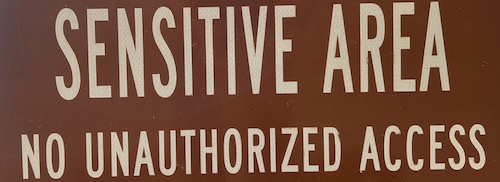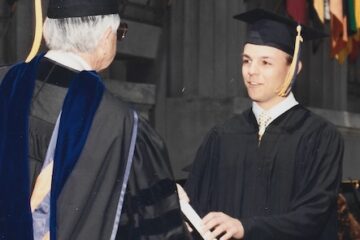Five ways to beat the pressure when trying to repeat a success
I’m writing a sequel to my new book. Writing a sequel is harder than writing the original.
There’s a freedom in new creation. Beginning fresh, starting from scratch. New ideas and a blank page.
Starting a brand new project is a bit like a first date, steeped in anticipation and excitement and mystery.
But a sequel?
Writing a sequel is like that period just after you’ve moved in together. Now you’re in a one-bedroom apartment, sharing a single bathroom. There’s still anticipation, excitement, and mystery. But it’s different when there’s not enough closet space.

I’ve written sequels before. I even wrote a trilogy.
(Please don’t make me extend that relationship metaphor to writing a third book in a trilogy. And yes, the third book is harder, but for other reasons.)
Anyway, in writing this sequel, I’m struggling with a phenomenon I’ve experienced before: It’s harder to create something I’m truly proud of when following up a success.
I’ve seen this happen with writers who sign a two-book deal. The first book got them the contract, but then they have a hell of a time producing the second book after the deal’s been signed.
This doesn’t just happen with what we think of as creative work—art, writing, music—but in other types of work as well. Application design. Sales pitches. Solicitation letters. Events. Second dates.
Doing something great isn’t easy, but doing something equally great the second time is harder.
Why the second time is harder
Creativity is a funny thing. We expect creative people to just always be naturally creative. If you’re creative, you create. You come up with new things. It’s just what you do.
In reality, however, a lot of factors affect the quality, originality, and effectiveness of creative output. Things like a distracting environment, stress, time limitations, unreliable tools, and many other factors can degrade someone’s creative output.
Studies have shown that interruptions and rushed timelines can reduce people’s ability to be creative in solving problems. Anyone who’s ever had the second leg of their flight canceled while on layover with two little kids knows this. Being frazzled and beset by small tyrants in a stressful situation may amp up your adrenalin, but it doesn’t make you a better problem solver. It actually interferes with your ability to be imaginative.
That’s true about creativity, generally speaking. But what if you created something great once and now you’re trying to follow it up with something else great, and all those other factors are unchanged? Why does it seem harder to repeat that first success?
Where you had freedom and zero expectations the first time, your initial success has now brought you new limitations and anchors. It’s kind of like when some people turn a hobby they love into a job that pays the bills. Some of what they loved about it gets smothered under the burdens of threat and reward.
This is similar to a phenomenon Daniel Pink writes about in Drive: when there’s an expectation of reward for solving a problem, people’s creativity drops. Pink was talking about intrinsic versus extrinsic motivations—intrinsic motivations charge up creativity while extrinsic motivations dampen it.
How does that apply to this sequel I’m writing? Poetry is unlikely to make me rich. No one is paying me in advance to write this sequel. All the motivation for it would seem to be intrinsic. So shouldn’t I be extra creative?
That was true when I was writing the first book, together. In fact, that first book has been very well received. People love it. I’m incredibly proud of it. Feedback has been overwhelmingly positive.
(Advertisement: You should buy it, read it, rate it, and give a copy to everyone you know who is literate in English. It’s just the right thing to do.)
That first book has become, in a way, my new boss on this project. There’s a threat of disappointing happy readers who expect the second one to be just as good. And I have my own desire to not only live up to the previous work, but to surpass it in both imaginativeness and quality.

So, every time I sit down to write a new poem, it feels harder and harder to get started. And when I do write something, I come away feeling it’s just a shadow of what I’ve written before.
But is that really true, or is my perspective skewed? I’m so close to my own work that I am unable to be objective about it.
I suspect this feeling is why so many people who produce something good never go on to create more.
But there are ways to break those barriers and keep yourself creating fresh, original, quality work… even when you’re feeling like you’ll never have another original thought again.
Five ways to power through the negative feelings
Here are five things I’ve done to keep producing when those feelings of pressure and inadequacy start to take hold. These are things I’m doing right now, and which I’ve done from time to time while writing this blog over the past 18 months.
Nearly everyone suffers a crisis of confidence from time to time. In fact, I’d suggest that the most capable people feel it more often, because they understand what greatness looks like and are constantly comparing their own work to that standard.
When you suffer a confidence crisis, use these five tips to keep producing and power through it.
1. Trust yourself and just keep going
This is the equivalent of “get out of your own way,” and it is a choice. Somehow you succeeded in the past; trust that success and choose to believe that you can repeat it. When a star athlete breaks out of a slump and tells reporters “I just started having fun out there again,” that’s a talented person trusting themself through doubt. Select a motivating phrase or quote, or find a totem that will remind you to trust yourself. Keep it handy and look at it when you’re feeling negative. Take a deep breath, and choose to trust yourself again.
2. Don’t overanalyze the first success
I rewatched an old favorite movie recently, then also rewatched its very mediocre sequel. Watching them back to back with the benefit of two decades of hindsight, it was easy to see all the ways the studio—writers, director, actors—misunderstood what had made the first film great. They kept all the wrong aspects and dropped all the good aspects. I think this was a failure of market research, but the point is that if you try too hard to recreate the first success, you’ll stifle the inherent creativity that made that first success possible to begin with. Strive for flow and connect to creativity; you can only fly by cutting loose the burdens, not by counting them over and over again.
3. Give yourself more time and let it simmer
Getting out of your own way doesn’t always happen on command, or on a schedule. People think, “I did it once; the second time will go more quickly.” But time pressure dampens creativity, so plan on spending more time, not less. Allow yourself to come back to each idea with fresh eyes at a different time and place. Instead of confining yourself to a rigid routine, actively seek to shake up your roadblocks. Work in a crowded, noisy place one day and a library the next. While some people swear they need the locked-down predictability of a rigid routine to be productive, I’d bet in most cases they are churning out the same thing over and over again without much originality. If you’re looking for originality, imagination, and creativity, then a routine is not necessarily your friend.

4. Find ways to make the task fresh
When I wrote my trilogy—a post-apocalyptic series for young adults—I knew I’d have to do something different to keep myself sharp while writing a quarter million words. When I hit on the idea to write each volume from a different main character’s point of view, each book suddenly became a fresh, new challenge. With one simple change, I opened up a whole new spirit of creativity. All three books, I am certain, are much better for it.
5. Seek feedback
When you’re in creative mode, especially when you’re overly self-critical, get feedback from people you trust along the way. Don’t ask them “what do you think” or “how is this”; ask them more directive questions like, “What do you like about this?” or “How does this differ from the last one?” The actual questions matter far less than making sure they don’t have an easy out of “oh it’s great!” You need to know that your inner critic isn’t to be trusted, and validation without specificity is easy to dismiss.
How it’s going
To be honest, the sequel is actually going quite well, thanks in part to the five tactics above. I’m behind schedule, but I know I will complete it and that it will be every bit as good as the first book. I trust myself. I get feedback. I give myself time to reflect and revise. I blow up the routines.
I’ve just started having fun out there again.
I can help.
I work with top executives and middle managers to improve their leadership skills and the effectiveness of their teams. I also help individuals identify and achieve their personal goals. How would you like to be better, be more resilient, or prepare for the next step?
It’s time to start having fun out there again.
You can help.
Think of one person who would benefit from reading this post. Sharing is caring! Forward it to them right now. They will think you’re super smart and well informed.



0 Comments